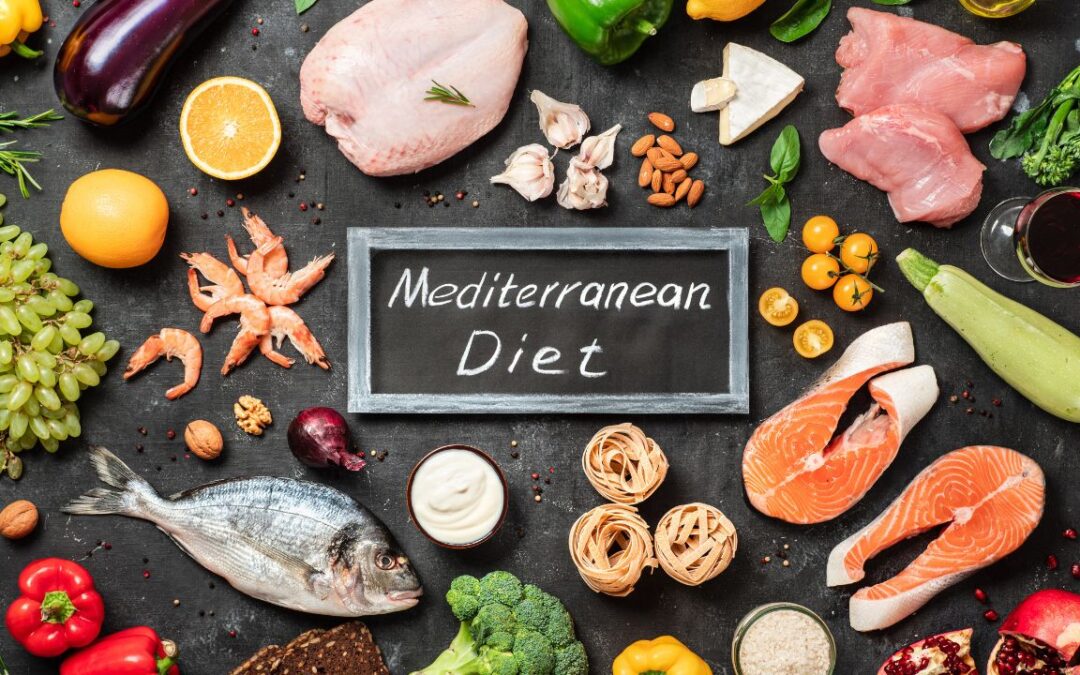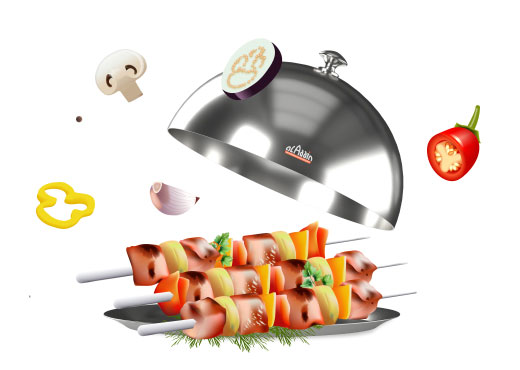The Mediterranean diet has consistently been ranked the best diet in the world. A report from the U.S. News Report ranked it no.1 out of 30 diets for the seventh year in a row.
Other popular diets like keto and Atkins clinched a sad 25th and 26th position, albeit being the most popular a few years ago.
You’re probably wondering what makes the Mediterranean diet a favorite compared to other diets. Is it the lack of diet restrictions, focus on plant-based foods, or the fact that it allows you to take wine?
A comparison between the Mediterranean diet and others can help you determine why it’s always ranked number one.
What is the Mediterranean Diet?
This is a diet that originates from the Mediterranean region and is characterized by vegetables, fresh fruits, legumes, seafood, whole grains, and moderate consumption of wine.
Animal products like red meat, chicken, eggs, and dairy are also enjoyed in moderation. The diet is also big on substituting unhealthy food options with healthy ones.
For example, instead of eating white flour, you use brown flour to prepare them. Also, you use olive oil instead of regular cooking oils and butter.
Unlike other diets that have numerous dietary restrictions, the Mediterranean diet allows you to eat healthy foods, forfeiting processed and refined foods.
Thus refined grains, soft drinks, and foods with added sugars are discouraged. The diet also encourages you to exercise.
Focusing on healthy food options makes the Mediterranean diet a favorite dietary plan for improving one’s health, and reducing the risk of heart disease, and mortality.
Studies also show that it minimizes the risk of developing certain types of cancer, Alzheimer’s, and Parkinson’s diseases.
Mediterranean vs. Keto Diet
The two diets have striking differences as one restricts the consumption of various foods while the other allows you to take all kinds of healthy foods. Here’s a more detailed comparison:
What is the Ketogenic Diet?
Before diving into the differences and similarities, it’s important to define the ketogenic diet. A keto diet is a high-protein, high-fat, low-carb diet.
The premise is to condition the body to utilize fat and protein for energy to promote the fat-burning process, a process referred to as ketosis.
Typically, the body uses glucose from carbohydrates for energy. When the body doesn’t get enough energy from the main source, it derives energy from alternative sources, usually the muscles and the liver.
Once the energy in these reserves is exhausted, the body turns to stored fat, a process known as ketosis.
That’s why the diet is a low-carb, high-fat, and high-protein diet, with a cap on carbs, usually up to 20-50g per day. As for protein, the dietary requirement is set at 10-20% of the diet to preserve the body mass without disrupting the ketosis process.
A typical ketogenic diet consists of foods like fish, butter, oils, nuts, lard, cheeses, fruits like avocado, and low-carb veggies like spinach and kale.
You may need to avoid high-carb foods like white rice, bread, baked foods, cereals, and pasta. You must also skip sweetcorn, legumes, beans, root veggies, most fruits, and starchy veggies like potatoes.
How the Mediterranean Diet Compares with the Keto Diet
The differences are evident from their definitions. While the Mediterranean diet advocates for the consumption of plant-based foods like beans and legumes, the keto diet prohibits it.
Also, the keto diet is big on high-fat, high-protein foods like red meat and butter while the latter propagates consuming them in moderation.
However, the diets seem to be effective at helping dieters lose weight. A study published in the American Journal of Clinical Nutrition in May 2022 found that both diets helped participants lose weight.
However, the Mediterranean diet was more effective as it helped the participants lose bad (low-density lipoprotein) too because it focused on plant-based foods more than its counterpart.
Also, the consumption of large amounts of eggs, cheese, bacon, and meat to provide alternative sources of energy increases inflammation, often associated with heart disease and various cancers.
The vice-versa is true with the Mediterranean diet.
Mediterranean Diet vs. Vegan Diet
The diets are somewhat similar as they’re both plant-based. However, there are a few differences worth noting.
What is a Vegan Diet
A vegan diet focuses on the consumption of plant-based foods exclusively and prohibits the animal products including eggs, meat, dairy, and honey.
Vegan diets vary by the food composition but the standard one consists of:
- Fruits and vegetables
- Forfeited dairy alternatives like yogurt and soya drinks
- Plant-based protein sources like beans, nuts, and seeds
- Starchy carbs like rice, bread, pasta and potatoes
- Unsaturated spreads and oils in small amounts
- Plenty of fluid, usually 6-8 cups a day
How They Compare
We can all agree that both diets focus on plant-based food sources. However, the Mediterranean diet allows animal products like chicken, red meat, eggs, dairy, fish, and seafood in moderation.
Also, the vegan diet prohibits the consumption or use of additives derived from animals including flavorings and food dyes.
Another striking difference has to do with processed foods. The Mediterranean diet prohibits it while the vegan diet allows dieters to eat processed foods as long as they don’t have animal products.
Lastly, some components are emphasized in the Mediterranean diet and not in vegan diets. The former allows consumption of red wine, meat, and heart-healthy fats in moderation, but the vegan diet doesn’t allow it.
As a result, the vegan diet is more restrictive and challenging to follow. Also, the lack of animal products like red meat, fish, chicken, and dairy products deprives the body of essential nutrients like iron and Vitamin B12.
This means a vegan diet can only be followed within a short period, e.g., to lose weight or detox. Conversely, the Mediterranean diet is easier to stick to in the long term as the body still gets essential nutrients.
Mediterranean Diet vs. the Flexitarian Diet
The Flexitarian diet is a pretty new entrant into the dietary scene and is designed to improve on the vegan diet. It allows the consumption of plant-based foods with occasional meat and fish consumption.
This diet is quite flexible as there are no definite rules. Some followers eat red meat, poultry, and fish once a week while others avoid red meat but include other animal sources.
In addition to the occasional consumption of animal proteins, the diet minimizes processed foods, like bacon and sausages, foods with added sugars, and refined carbs.
How They Compare
The two diets certainly have a lot in common. To begin with, they both focus on plant-based food sources with occasional or moderate consumption of animal-based products.
That’s why they’re excellent weight loss diets. The Flexitarian diet is more effective because it emphasizes low-carb plant-based foods.
However, the Flexitarian diet is a more sustainable alternative because it encourages moderate consumption of meat.
Meat production has a severe impact on the environment as it increases greenhouse gas emissions that lead to climate change.
As such, the flexitarian diet is more suitable for people looking to minimize meat consumption and lose weight.
Mediterranean vs. Paleo Diet
The paleo diet is another interesting diet worth looking at due to its striking similarities with the Mediterranean diet. Both diets emphasize foods like fruit, fish, vegetables, nuts, and seeds.
In addition, they are at the same end of the NOVA spectrum because they encourage minimally processed and unprocessed foods.
What’s more, neither of the diets requires tracking the portion sizes, leaving it to your judgment. However, their origins are different.
The Paleo diet borrows from the caveman or Stone Age diet limiting a dieter’s food options to what could be hunted in prehistoric times.
It’s based on the idea that chronic ailments originate from agricultural produce like legumes, dairy, and grains and developed after the agricultural revolution.
As such, the diet mainly consists of fish, lean meats, seeds, nuts, vegetables, fish, oils, and fruits excluding foods derived from small-scale farming.
The diet is ideal for people who want to reduce the risk of developing heart disease, lose weight, or maintain a healthy weight.
How They Compare
Although the diets are somewhat similar we can’t ignore paleo’s strict avoidance of legumes, grains, and dairy.
The diet advocates replacing them with foods like seeds, fish, tubers, nuts, seeds, and poultry. These foods are rich in essential nutrients like protein, calcium, magnesium, iron, and vitamin B12.
Conversely, the Mediterranean diet encourages the consumption of these foods with red meat, fish, and poultry taken moderately.
Lastly, you’ll notice that the Paleo diet encourages the consumption of saturated fats like butter, lard, and coconut oil. The Mediterranean diet, on the other hand, discourages dieters from using such fats, strongly proposing the use of olive oil.
FAQs
Is the Mediterranean Diet more expensive to follow than other diets?
The cost of following the Mediterranean diet can vary, but it does not have to be more expensive than other diets. While fresh produce and seafood might increase grocery bills, the diet’s reliance on whole, minimally processed foods can offset costs over time. Planning meals, buying seasonal produce, and opting for plant-based proteins can help manage expenses.
Can vegetarians or vegans follow the Mediterranean Diet?
Yes, vegetarians and vegans can easily adapt the Mediterranean diet to fit their lifestyle. The diet’s focus on fruits, vegetables, whole grains, nuts, seeds, and olive oil aligns well with vegetarian and vegan dietary preferences.
How does the Mediterranean Diet compare to the Keto Diet in terms of weight loss and heart health?
The Mediterranean and Keto diets both have benefits, but they take different approaches. The Keto diet focuses on high fat, moderate protein, and very low carbohydrates, aiming to put the body into a state of ketosis for weight loss. The Mediterranean diet, on the other hand, includes a broader range of food groups and emphasizes heart-healthy fats like olive oil. While the Keto diet can lead to rapid weight loss, the Mediterranean diet is often recommended for long-term heart health and sustainable weight management.
Is the Mediterranean Diet easy to follow for busy individuals?
The Mediterranean diet is considered one of the easier diets to follow for busy individuals. Its focus on simple, fresh ingredients and flexible meal planning can accommodate a busy lifestyle. Preparing meals in bulk and using readily available fresh produce can make adherence more manageable.
How does the Mediterranean Diet impact long-term health compared to low-fat diets?
The Mediterranean diet has been associated with numerous long-term health benefits, including a lower risk of heart disease, stroke, type 2 diabetes, and certain cancers, surpassing the benefits often cited with traditional low-fat diets. While low-fat diets can be effective for weight loss and improving some health markers, the Mediterranean diet offers a broader range of nutrients and emphasizes healthy fat sources, which may be more beneficial for overall longevity and chronic disease prevention.
Conclusion
This detailed comparison of the Mediterranean diet and other diets helps you choose the right one for your needs and goals. The Mediterranean diet provides a healthier option than most other diets but if you’re looking to achieve more specific goals, e.g., detoxing, you may need to look into other diets. For example, a vegan diet’s focus on vegetables can help you cleanse the body, while if you’re more eco-conscious, then a Flexitarian diet is preferred.
.


